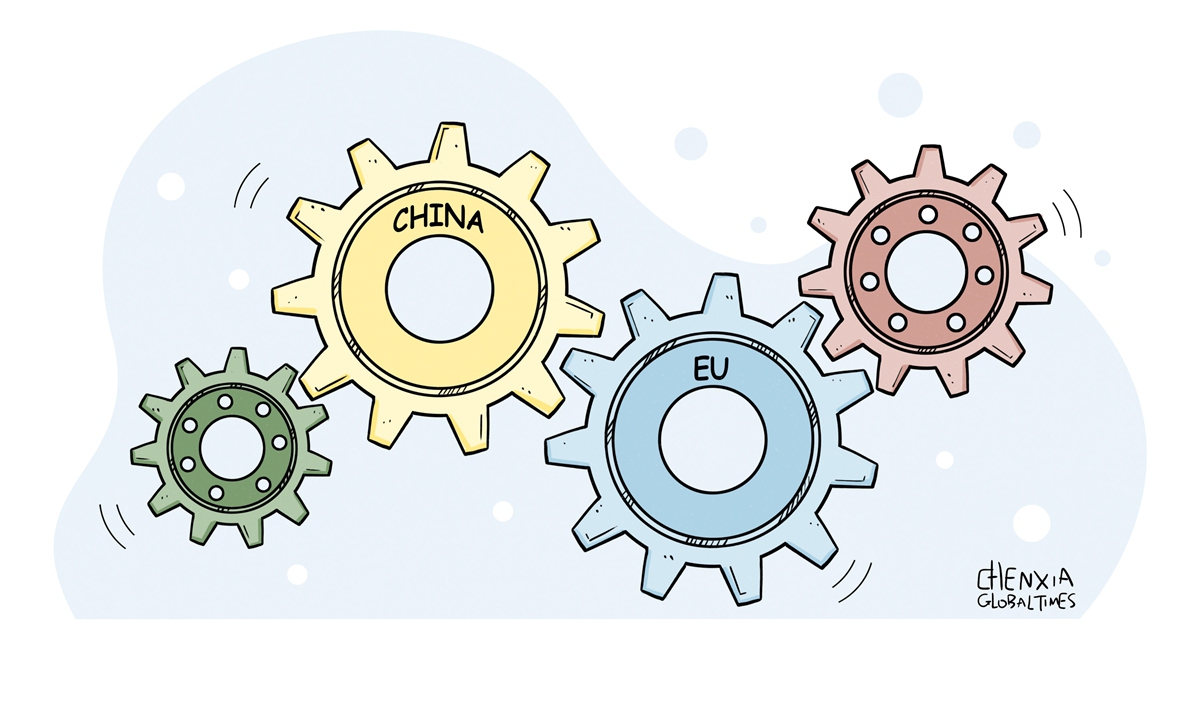
Illustration: Chen Xia/GT
Despite the growing complexity of economic and trade relations between China and the EU, European companies remain steadfast in their confidence in the Chinese market, as evidenced by their continued investments and firm business choices.
French pharma giant Sanofi on Monday announced that it will invest some 1 billion euros ($1.05 billion) to build a new insulin production base in Beijing, which will be the drugmaker's fourth production-and-supply base in China and its largest single investment in the country to date, the Xinhua News Agency reported on Tuesday.
Sanofi's investment decision is a clear vote of confidence in the Chinese market, grounded in long-term strategic consideration. China's vast scale and ever-growing consumer demand have long captivated global investors, particularly in the healthcare sector, which has witnessed a surge of interest in recent years. This heightened focus is largely attributable to the Chinese government's ongoing efforts to improve its multi-tiered medical-insurance system and bring universal coverage in recent years, which has led to rising public demand for high-quality medical services.
The continuous advancements in the healthcare system not only elevate the quality of life for people in China but also present substantial growth opportunities for foreign pharmaceutical companies. In this context, Sanofi's investment decision is not merely a business maneuver; it is a positive response to the Chinese government's unwavering commitment to enhancing people's livelihoods and improving overall health standards.
Meanwhile, a series of opening-up measures - including policy support, improved market access, and strengthened intellectual property protection - have made the Chinese market more open, inclusive and transparent.
Indeed, the new investment by Sanofi could be seen as a microcosm of the ongoing appeal in the development of China's healthcare industry. At the 2024 International Biopharmaceutical Industry Innovation Conference Beijing Forum in late October, six multinational pharmaceutical companies, including Eli Lilly, Pfizer, Bayer, AstraZeneca and Medtronic, announced plans to establish R&D or innovation projects in Beijing.
From the perspective of China-EU economic and trade cooperation, there is significant potential for deep cooperation between China and the EU in the pharmaceutical sector, which can jointly advance the global pharmaceutical industry. In fact, China-EU cooperation extends beyond the pharmaceutical field. Both sides have vast opportunities for collaboration in emerging sectors such as green energy, digital economy, and artificial intelligence.
But this is all premised on one thing: EU policymakers need to truly face up to the underlying significance of European companies' choices and confidence in the Chinese market. In recent years, the China-EU trade relationship has continued to face challenges and uncertainties.
Some EU politicians, influenced by trade protectionism and geopolitical factors, have advocated barriers and restrictions on Chinese goods and services, which undoubtedly affect the environment for China-EU economic and trade cooperation.
However, amidst these challenges, the firm choices made by European companies like Sanofi in the Chinese market send a positive signal. Their actions demonstrate that, despite the challenges in China-EU trade relations, the Chinese market remains attractive and full of potential for development. This not only reflects their recognition and support for the Chinese market but also offers reasons for optimism over the future China-EU trade relations at the current juncture.
If anything, the EU needs to recognize that the opening-up of the Chinese market not only provides enormous business opportunities for European companies, but also provides a platform for cooperation in technological innovation and industrial upgrading. Cooperation with China is important for promoting economic recovery and growth in Europe.
This means that the EU, in light of the global economic uncertainties, needs to not only address trade frictions, but also adopt a pragmatic approach to identifying new areas of collaboration and innovative models for deepening cooperation with China.




